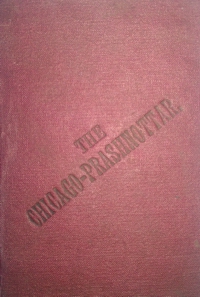87. Question:
You should put to God Himself the question of creation of the universe as to how and wherefrom He created the universe and why did He create happy and miserable lives?
Answer:
If God were to say to us that He created the universe and that He created happy and miserable lives not consequent upon their good and bad actions, then we would put the question to Him. But God never tells us those things. Hence we put these questions to you. Consequently God is not the administrator of justice (to the living beings) in the universe, nor does He made the human beings high or low, wealthy or destitute, happy or miserable, rich or poor, educated or ignorant, beautiful or ugly. For instance a man is travelling and while on his way a brick or a piece of stone or wood etc. falls down from a house upon his head in consequence of which his head is broken and he suffers great pain. Now you see that the house was not built by God, it was built by artisans and that the brick or stone or wood etc. was not placed there by God, and God did not throw it or break his head. That brick or stone or wood was worn out by time. The brick etc. being either worn out by time or moved by any man or animal or wind broke his head and caused him pain, but this was not caused by God. Consequently God has not created various kinds of pleasure and pain, highness and lowness in this world. On the other hand, by prawah (unbroken succession) this variegated universe comes into being and to end caused by the nimits such as the mutual action of time, swabhao (nature), niyati (rules of conduct), karma (action), purushārth (any one of the four principal objects of human life i. e. dharma, arth, kam, moksha), matter; and it would remain so from eternity to eternity. The moksa-pad is also without beginning and end. The living beings do attain that position having destroyed all the actions. The worldly beings come into human or other life and enjoy pleasure or suffer pain and get high or low position etc. with the help of their respective causes nimits according to their good or bad actions. Arhat-Siddha Parmeshar knows from his knowledge all the different conditions of the worldly beings who are doing good or bad actions and suffering their consequences with the help of nimits. Everything is done just in the same way as God reflects in his knowledge. Nothing is done contrary to it.
88. Question:
What short-comings are there in all the religions?
Answer:
Nobody calls the religion believed in by him to be faulty. People are always ready to point out faults in other religions. The Jaina religion is entirely faultless. But in the present age the Indian Jainas do not possess such mental and physical energies as may enable them to completely tread the path of moksha as dictated by the Jaina shāstras. The Jainas pass the lives of a recluse and householder according to the present age. But they cannot completely follow the Utsargik (natural, that which is liable to be abolished in exceptional cases, though generally valid) path. The second defect among the Jainas is that they pay little heed towards education. There is no union among them. Even the Sādhus are not on good terms among themselves. These defects are in the individual Jainas of the present age, while the Jaina religion is faultless.
89. Question:
What have Judaism, Christianity and other religions done for mankind?
Answer:
These religions have clone limited good to mankind by preaching through their religious books to mankind the worship of God, mercy, charity, truth, chastity, contentment, forgiveness, ārjava (honesty), mārdava (gentleness), vinaya (respect, politeness), obligingness, kratajnatā (gratefulness) etc., which give a good name to such persons in this world and swarg (heaven) kingdom etc. But the religions referred to above, have done great harm to mankind in as much as they have not told mankind the true attributes of Deva, (God) guru (teacher) and dharma and have teachings to the contrary. The Jaina religion shows for mankind ekant hit (wholesome good) and the true path of mohsha and nothing perverted. Hence it has done all good without harm.
90. Question:
How did the people come to understand the importance of the formula of repentance?
Answer:
First the repentance does away with the sin which has been done unknowingly. This is not the case with all sorts of sins.
Some sinful acts become relax by repentance. The good of repentance lies only in this that he who repents for a sinful act does not do that act again. The reason why the conviction in the formula of repentance is essential is that the person who fears the consequences of sinful act, repents purely from his heart, then his heart becomes very soft, and the very pervasiveness of that purity and softness in the heart destroys all sins. The formula of repentance has been dictated by the omniscient God who is free from 18 faults. God never speaks falsehood. Thus formerly in the time of sarvajna Parmeshwar, Gautama and other munis (saints) believed in the truth of the formula. In other words, their speeches made the people believe in it. This is the siddhānt (doctrine).
 Shrimat Vijyasandsuri
Shrimat Vijyasandsuri
